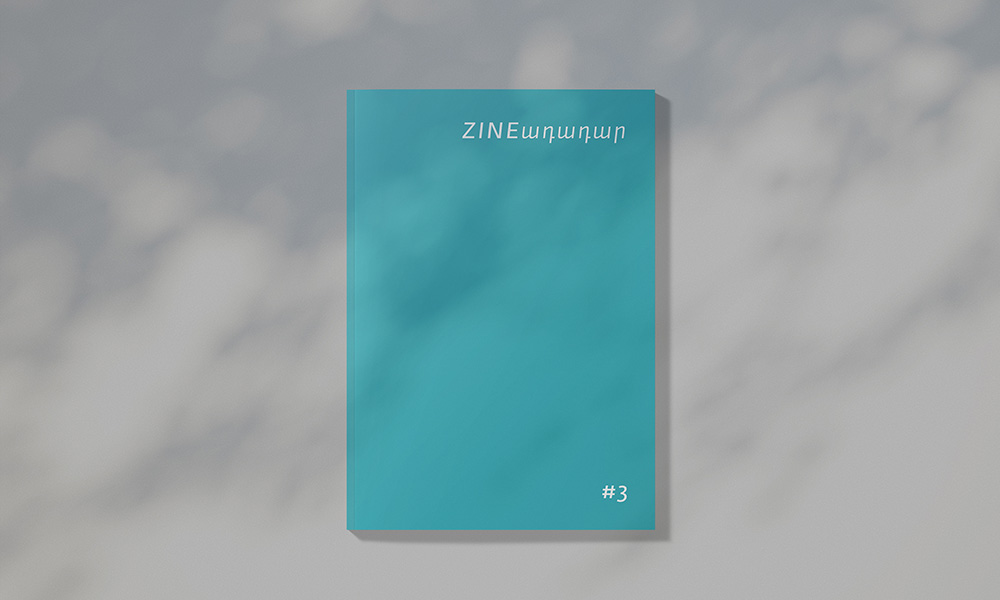Lately, the "ZINEadadar" project released its third zine-book, "Restless Suitcase," delving into the intricate aspects of displacement amidst wartime and armed conflicts. The publication thoughtfully explores the deep connection people have with their homeland and disruption of deeply cherished memories.
"Restless Suitcase" is hitting the shelves during an exceptionally challenging period, with Artsakh/Nagorno-Karabakh enduring a state of siege and grappling with a humanitarian crisis. Almost on a daily basis, we witness people attempting to reach Armenia via the Lachin Corridor, having no guarantees if they can do it safely. Will they get there? Will they ever be able to return home? Will they be able to adjust to a new reality? Will the state sufficiently address their needs and provide proper support? Amidst the challenging circumstances in Armenia, different parts of the region also face tensions: on a daily basis many people go through the traumatic experience of displacement caused by wars, armed conflicts and political repressions.
The third zine in the "ZINEadadar" series unveils profoundly intimate and delicate stories of displaced women from various conflict-ridden areas in the region, including Abkhazia, Armenia, ArtsakhNagorno Karabakh, Belarus, and Ukraine. The aim of the zine is to shed light on the difficulties and obstacles that the displaced people have to overcome. The "Restless Suitcase" zine delves into various critical topics through a collection of in-depth interviews and expert analysis. These issues include the collapse of social life, the disruption of emotional connection to a cherished place, the fading of a memory of a place, the complexities of adapting to a new environment, starting a new life and so forth.

The "Restless Suitcase" zine recounts the experiences of five women who share their emotions, anxieties, and fears while reflecting on the challenging experience of displacement.
Shushan Kyureghyan, an orientalist displaced from Berdzor/Lachin during the Second Karabakh War, shares her experience of grappling with uncertainty, questioning her own status, and confronting an identity and memory crisis following the war. Shushan emphasises how much her identity is anchored to the environment where she grew up. In order to maintain this bond and safeguard her memories, she has to recreate the space of her memories using photographs, videos, and items that symbolise her childhood, home, and city.
Kristina Chernenko from Ukraine shares her experience of experiencing double displacement. First, in 2014, she was forced to leave Luhansk due to the Russian attack on Ukraine. Then, in 2022, history repeated itself- Russia invaded Ukraine, and she had to move from Kyiv, where she barely managed to overcome hardships and built a new life. Kristina portrays the complexity of coexisting with the ongoing war, sharing the fears and concerns surrounding the delicate stability of life.
Lela Jobava from the city of Gali in Abkhazia, recounts about the inaccessibility of her home as a result of the Russian attack on Georgia. She opens up about the barriers and barbed wire obstacles she had to navigate in order to reach Gali. She reflects on the discrimination against Georgians in the aftermath of the war, the pervasive atmosphere of militarization, and the unjust conditions brought about by the presence of Russian peacekeepers in Abkhazia— circumstances that ultimately forced her to leave Gali.
Susanna from Artsakh, who lost her home in Taghavard due to the Second Karabakh War, talks about being forced to leave the village, being cut off from her community, moving to Yerevan and later to Stepanakert, where she tried to overcome the traumatic experience of war as well as social problems by baking bread with zhengyal. Susanna also covers the inadequate support offered by the state to displaced people and the lack of preparedness to adequately address the situation.
Nadzeya, who fled Belarus due to political repression and found a new home in Kyiv, shares about her difficult journey: first, she had to leave her hometown due to her political beliefs and later — Kyiv due to the Russian aggression.
In a framework of the “Restless Suitcase” zine, cultural anthropologist Eviya Hovhannisyan explores the dynamics of a multi-step migration and changing of houses in the context of the Armenian-Azerbaijani conflict. She delves into the multi-step migration process and its impact on shaping complex identities among displaced people and settlers.
All editions of the "ZINEadar" series of zines are accompanied by thematic illustrations and posters, and, of course, the "Restless Suitcase" with its illustrations created by the artist Anna Hakopian, is no exception. With her unique visual language, Anna has artfully gathered the fragments of memory, portraying the stories of displaced women and delicately conveying their emotions and feelings.
The "Restless Suitcase" zine portrays the sensory experience of women who have undergone displacement. These stories originate from various parts of the world, stemming from different conflicts, yet they underscore the shared aftermath of wars and the universal nature of the devastation wrought by those. On the other hand, these narratives advocate for the vital role of peace-building and spreading the message of peace.

